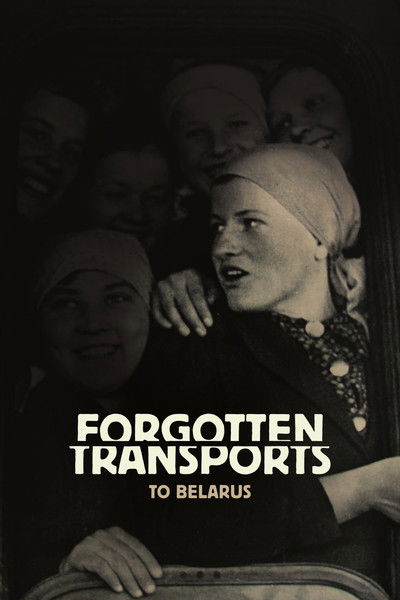Forgotten Transports to Belarus
Genres
Documentary
OverView
Belarus between 1941 and 1944 was an apocalyptic place with nights lit by flames from hundreds of torched villages and with soil soaked in the blood of countless victims.
Others
Budget
$--
Revenue
$--
Status
Released
Original Language
Czech
Runtime
85 mins
Rating
6/10
Release Date
18 March 2008
Country
Czech Republic
